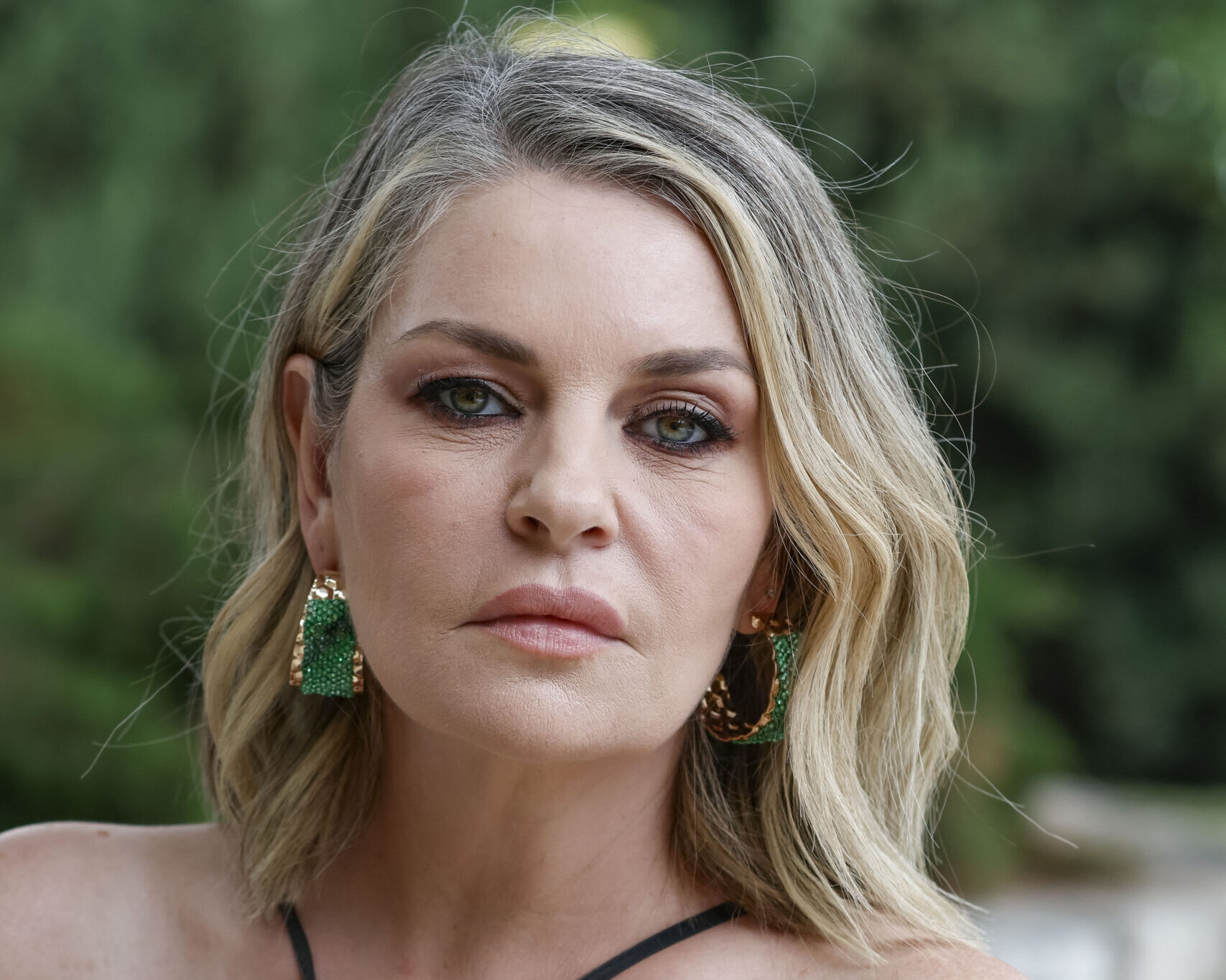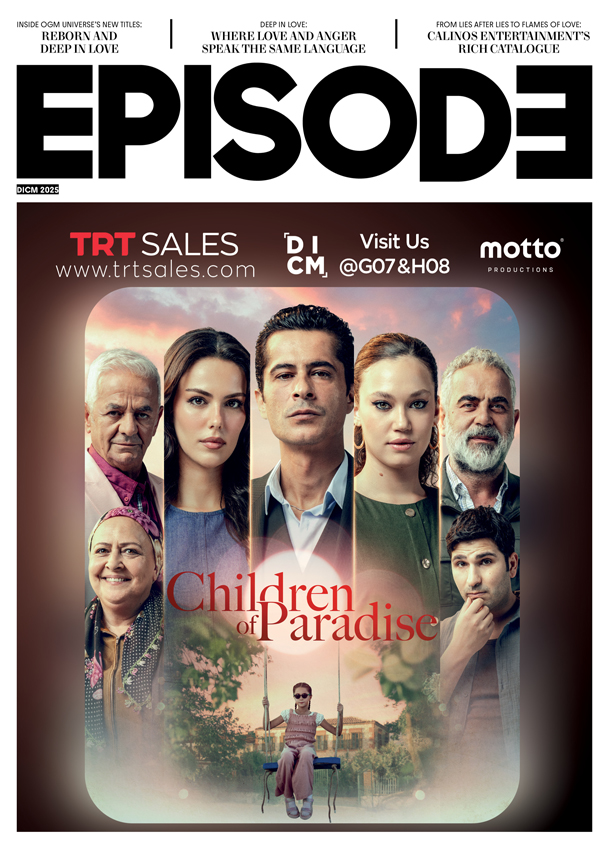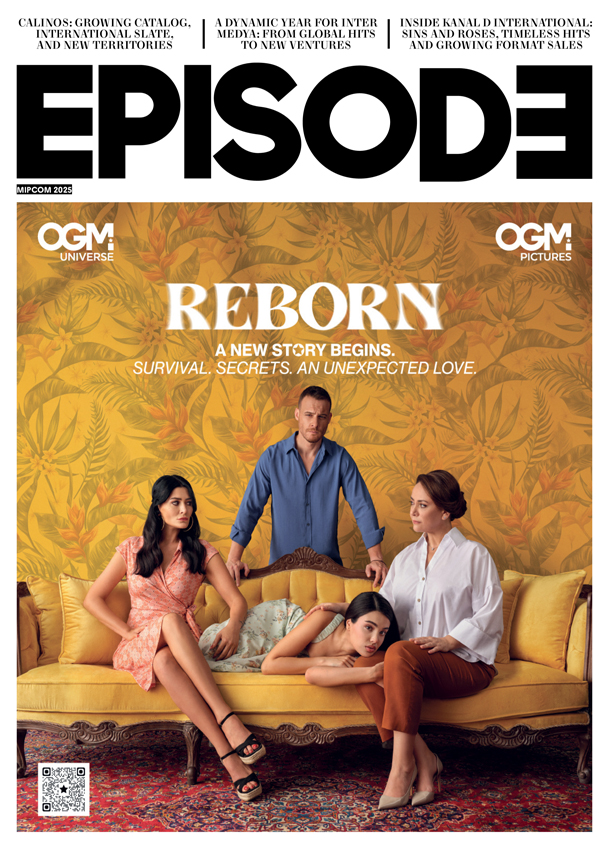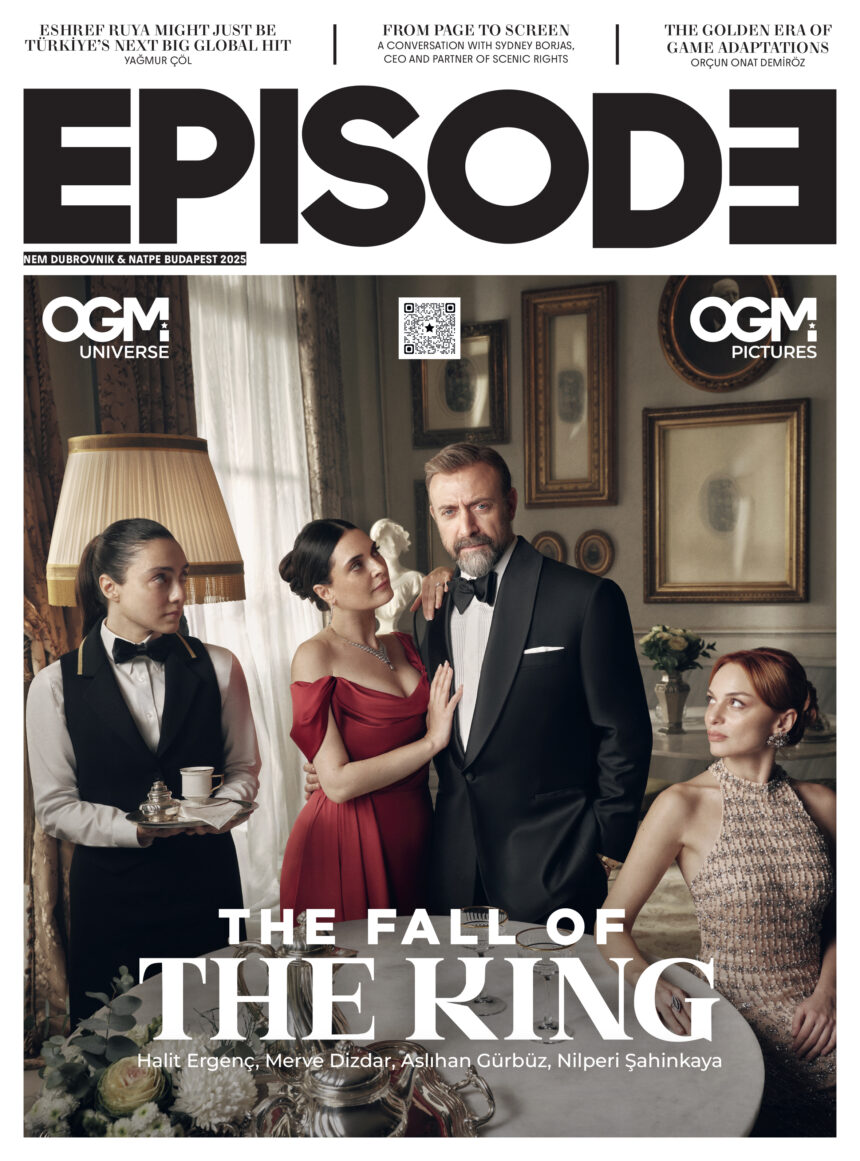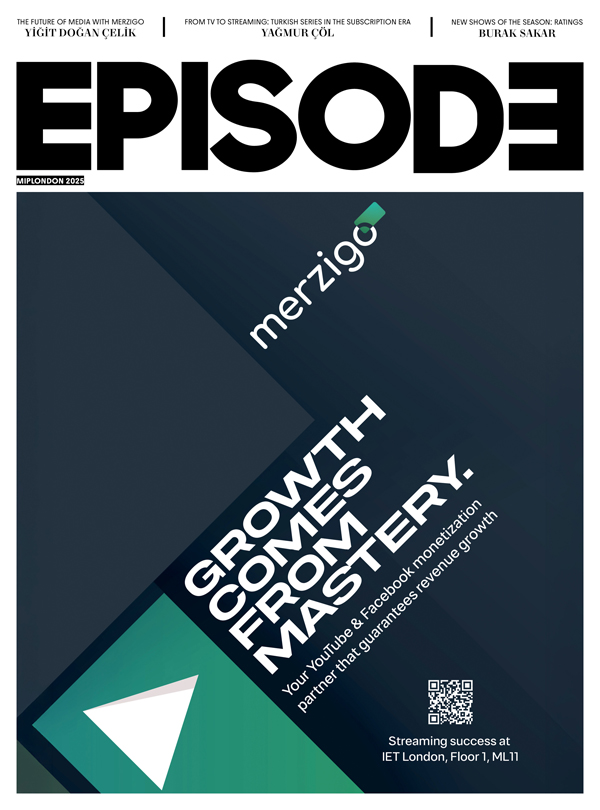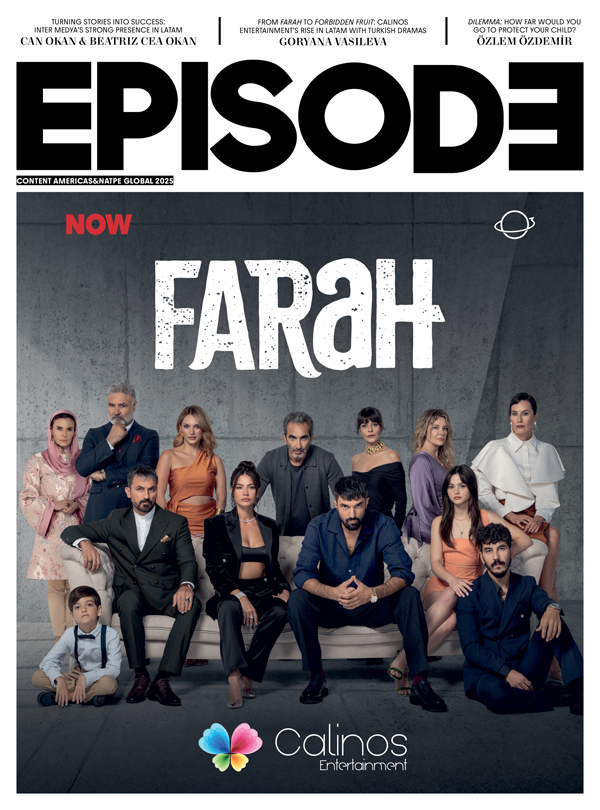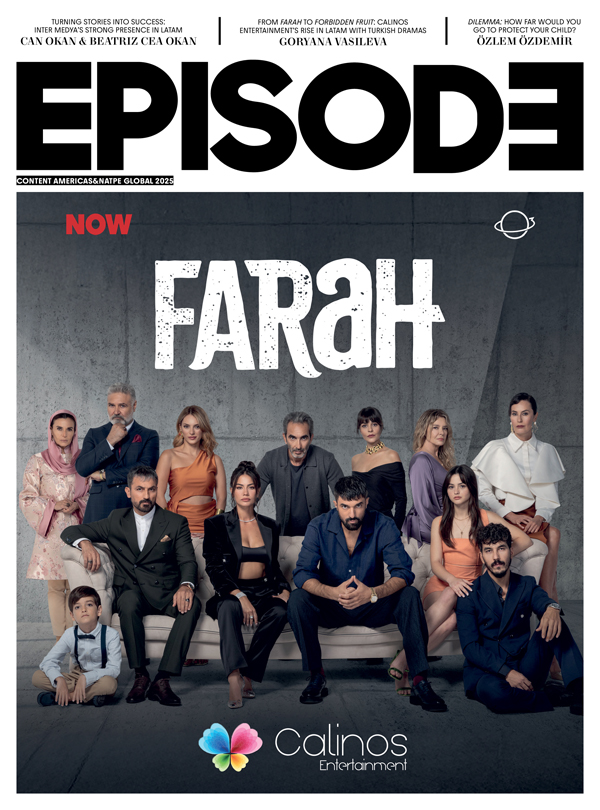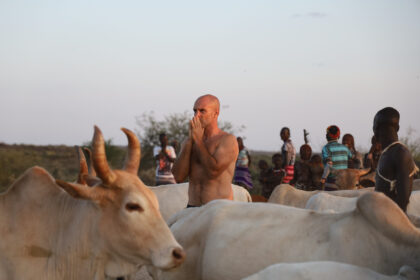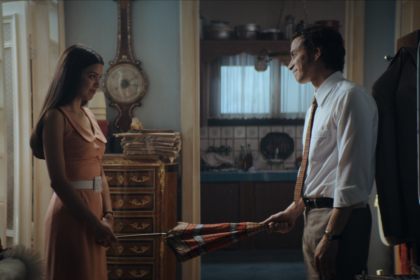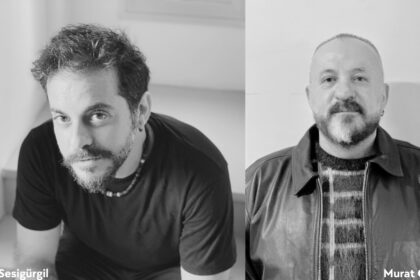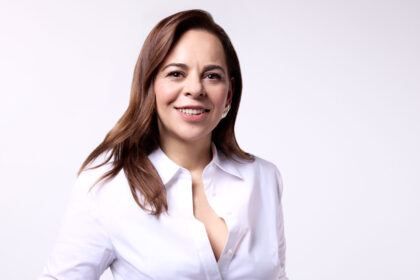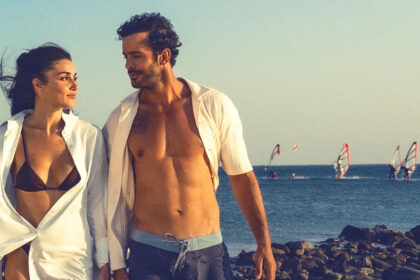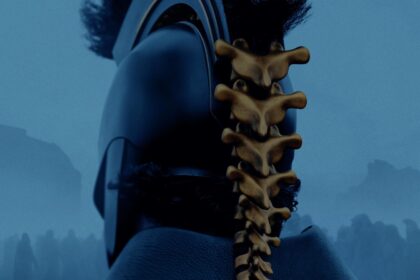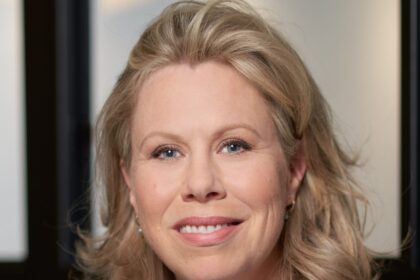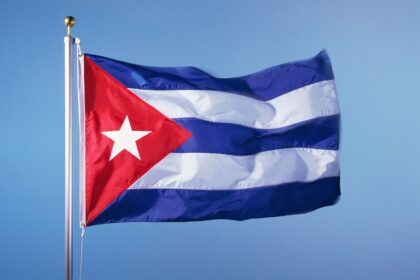From starring in Yorgos Lanthimos’ early film My Best Friend to becoming a familiar face in some of Greece’s most popular TV series, Elisavet Moutafi has built a remarkable career. In Na M’Agapas (Love Me), she steps into the role of Sofia (Hikmet), a strong and ruthless woman at the heart of the intrigue. We spoke with her about how a victim can turn into a perpetrator, the dangerous limits of maternal instinct, and the dark places she had to explore to understand the motivations behind this complex character.
Read our exclusive interviews with the cast and director of Love Me here.
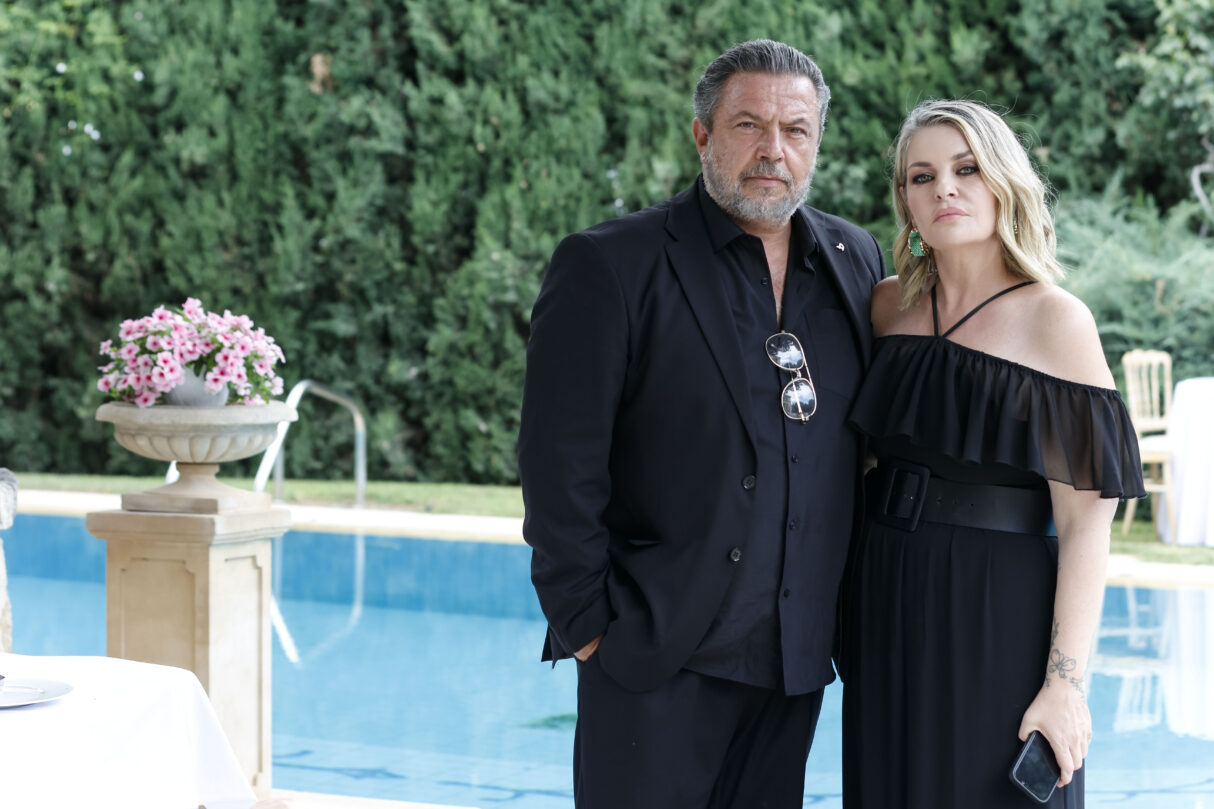
You play Sofia (Hikmet), one of the most complex and controversial characters in the series. How would you describe her in your own words?
Elisavet Moutafi: There’s a truth we all know in life: sometimes the victim becomes the oppressor. That’s why I don’t see Sofia as simply a character who wants to be “bad.” What she’s been through in the past is the key to understanding her. Everything she does, she does in order to protect her child.
As parents, we often think we’re doing what’s best for our children, but in trying to protect them, we can end up causing harm instead. That’s exactly what Sofia’s story is about. This complexity is what makes the role so fascinating for me. I’ve never played a character like this before in my career.
So when it comes to Sofia forcing her daughter into marriage to maintain her status, did you approach her more as a villain or as a desperate, protective mother?
Elisavet Moutafi: I don’t think those two sides are very different; they’re part of the same whole. It all begins with her desire to protect her child and give her the things she never had. But eventually, she pushes too far and crosses the line. The victim becomes the oppressor. While trying to give her daughter what she was deprived of, she ends up making her greatest mistake. Sofia has never known love, and because of that, she can’t give it. The main emotion driving her is this lack of love.
Do you feel extra pressure knowing the series has been so successful in many countries?
Elisavet Moutafi: I feel very proud to be part of the adaptation of such a successful series from a neighboring country. At the same time, this is a big responsibility. I deliberately chose not to watch the original because I wanted to create my character from scratch, by my instincts, the script, and my own experiences. I know how highly regarded Turkish actress Esra Dermancıoğlu is as a theater artist, and I didn’t want to be influenced by her outstanding performance. Since our filming started so soon after the original, my priority was to create a completely original interpretation of the character.
We see three different interpretations of motherhood in the series: Nikiti, Zoe, and Sofia. In a world where the concept of motherhood is so often debated, which of these characters do you think audiences will connect with the most?
Elisavet Moutafi: That’s a difficult question. In Türkiye, there’s a saying, “Mothers are sacred,” and here in Greece, we have a verse by the poet Nikos Kavvadías: “No one remembers you except your mother.” Mothers are so special. That’s why I believe all three women will be both judged and understood by the audience. At first glance, Sofia may seem like the toughest, the “bad” one, but what makes our script so powerful is that nothing is one-dimensional. Just like in real life, every character has both good and bad sides. I honestly believe that women watching will find a part of themselves in each of these three characters.






